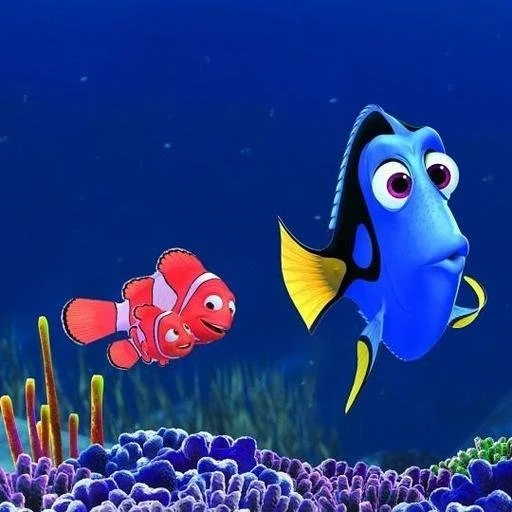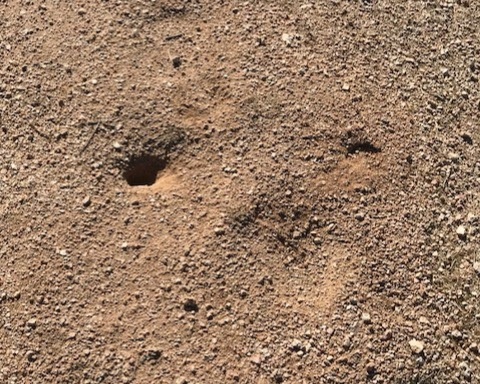Sometimes the most unexpected moments hold the deepest truths. One evening, I sat with my granddaughter Violet to watch Finding Dory. What began as a simple movie night turned into a tender conversation—one about memory, love, and what it means to be held even when we forget.
This excerpt comes from my upcoming memoir, A Year With My Dad, where I explore the hidden gifts discovered in the journey through dementia.
Some conversations stay with you, like a song you didn’t know you loved until you found yourself singing it in the shower. (Every day). It’s strange how certain words echo long after the talking’s done. Some of them leave you standing there, arms full of your own sadness and someone else’s, not even sure which is heavier.
It was one of our regular Friday night traditions when we watch the grandkids—movie night on the couch. Popcorn everywhere, wrappers crammed between couch cushions, the whole shebang. We’ve pretty much run out of the “classics” to watch, so that night we landed on Finding Dory. I’d seen it before, thought Dory was hilarious, all forgetful and quirky. Never really went beyond that, honestly. Until that night slammed me in the chest.
Dory, in case you somehow missed it, is this bright blue fish who can’t remember squat—names, places, even what she was just saying. Every scene’s like Deja vu on steroids: confusion, panic, hope, and then—poof—she forgets. It’s almost funny, until you actually pay attention. Then it’s heartbreaking.
Halfway through, Violet—she’s nine, big eyes, popcorn breath—snuggles closer under the blanket and just hits me with this look. The serious one. “Grandma, do people really have memory problems like that?”
Didn’t see that coming. My chest went tight. All those times I’d watching Dory, and never once did my brain pull up my dad. But right then, boom—there he was. Clear as day.
I felt a sudden tightness in my chest. All the times I’d seen that movie, I never connected Dory to my dad. But in that moment, I did. Completely.
Her eyes searched mine, waiting.
“Yes, “ I said softly. “Some people do.”
She was quiet for a minute. Then, the next question, quiet but heavy. ”Do you know someone who has memory problems like Dory?”
Deep breath.. “Yes, sweetheart. Your great-grandpa, my dad, he does.”
Her face just crumpled, like the news physically hurt. “Great Grandpa? really? That must be awful.”
“It is, I said. No sugarcoating. “But just like Nemo helps Dory, I help Great Grandpa. I’m his memory now, I carry what he can’t hold onto and help him find his way.
She leaned into me, blanket up to her chin, and whispers, “That makes me sad.”
Tears welled in my eyes—not just because she said it, but because I finally saw it—this sorrow wasn’t just mine. Somehow, it had tiptoed into her heart too, this kid who feels things deeper than most adults I know. She was carrying a piece of it, without even having the words.
And right there, in that quiet, heavy moment, I realized something—maybe that’s a blessing too.
Grief. Is unpredictable. When you let someone in—really let them in—it’s it’s like building a bridge out of all those broken pieces. Suddenly, there’s this space, almost sacred, where you just sit with another person (like Violet and me, huddled up on that old couch) and you don’t have to say anything. No fixing, no explaining. Just being there. Just love. That’s it.
I always thought dementia was just a thief. Like, it comes in the night and snatches away memories, abilities, any sense of control. But, really? Sometimes it brings stuff too. It cracks you open, let’s in a different kind of love—the kind that doesn’t need words or even memories to be real. You just get these strange, beautiful moments: a shared blanket, a kid teaching you how to be honest about grief.
Maybe that’s what nobody talks about—the amazing grace of grieving together. The way you find the guts to keep loving, even when everything feels like it’s falling apart.
Watching Violet take in Dory’s story reminded me that even in the midst of forgetfulness, there are anchors of love that hold us steady. Sometimes those anchors come through the words of a child, reminding us that joy and resilience live side by side.
Moments like these are the heart of my memoir—small glimpses of grace that carry me through caring for my father.



















